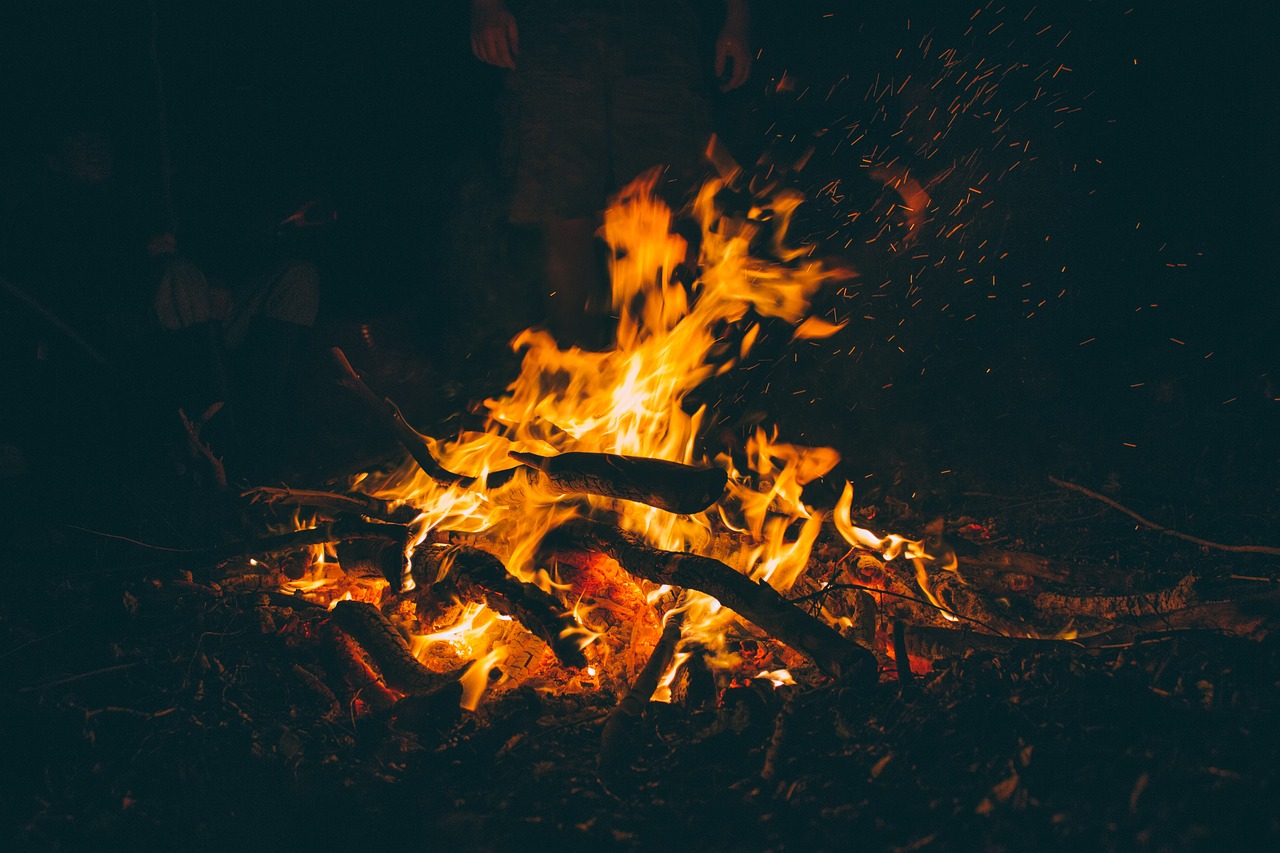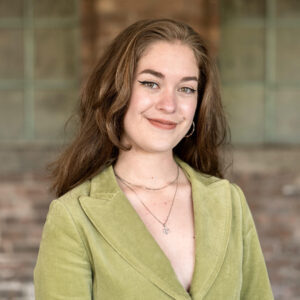In 2022, New Voices Magazine conducted an investigation that broke open a conversation on how Jewish summer camps are damaging LGBTQ+ youth. A year later, we return to this urgent topic as the camp season begins. New Voices sat down with Sandra Fox, the author of The Jews of Summer for a conversation about gender, sexuality, cultural production, and how camp history can inform the present and future.
The inaugural sunburns and hastily-made friendship bracelets are beginning to appear, marking one of Jewish America’s most impactful and beloved traditions: the first day of summer camp. For thousands of Jews across the country, the rite of passage that begins on a bus and ends in a closing circle is an essential element of their identity; a place of community building, cultural enrichment, and freedom from the expectations of school and family life. Despite the existence of camps of all backgrounds, Jewish summer camps are uniquely situated as impactful centers of learning, community engagement, and cultural continuity.
There has been a wealth of research done on the topic of Jewish summer camp, particularly around the genesis of the movement in the late 19th century and the role of camps as centers of cultural enforcement. There are also more modern interrogations of how camp positively and negatively impacts the children and teens in attendance, which study the emotional, ideological, and physical comfort of the campers. Far from a relic, summer camp is an active theoretical ground of adoration and criticism for Jews of all affiliations. More and more, former and current campers are vocalizing their experiences at camp for wider audiences, expanding camp culture past the physical realm. The critiques, narratives, and interpretations of experiences at camp should yield a frank discussion about how our institutions can both preserve our communal, historical memories and work to ensure the maintenance of positive communities. Young Jewish adults have been strong proponents of these conversations, even when they culminate in hard to hear truths. For those who want to participate in this discussion with a full breadth of context, it’s important to recognize summer camp not simply as an individual experience, but as a major site of cultural production in the Jewish community.
As the days tick towards the start of first session, a new piece of research is available as a guide to the legacy and impact of the Jewish summer camp. The Jews of Summer: Summer Camp and Jewish Culture in Postwar America by Sandra Fox is a keystone text in the making, a brilliant and through new foundation to discussions of previously unexpanded areas of summer camp. New Voices Magazine had the privilege of speaking with Fox about her process in writing this seminal text, her thoughts on camp culture, and her views on the future of summer camp’s historiography.
Gender and Sexuality in Camp History
The Jews of Summer is an eight chapter exploration into the essence of post-war Jewish summer camp. From the power of play and competition, to the concept of camper-centric democracy, to the integration of Jewish history into camp spaces, Fox fills the theoretical gaps that have long plagued post-war research into the Jewish summer camp. There is however, one chapter that felt especially valuable to focus on in our interview, almost a year after the publication of New Voices Magazine’s exclusive investigation on sexual culture within Jewish summer camps. “Summer Flings and Fuzzy Rings: Camper Romance, Erotic Zionism, and Intermarriage Anxiety” analyzes the vital role that sex and romance have played in camp environments post-sexual revolution, but more importantly, it articulates “the motivations that camp leaders had for allowing and encouraging dating and sexual experimentation… [and how] they shaped their camp’s dating cultures to better fit their camp’s ideological goals.”
The issues exposed in last year’s investigation are still incredibly pressing. Young, queer Jews are still struggling to fit into camp environments, or are coming to terms with violence they might have experienced years ago in perceptively safe spaces. Camps are under more pressure to contrast the hostile environment that trans and gender non-conforming people are facing, as state legislatures restrict their rights and health care. Sandy Fox is a historian and not a contemporary pundit, but when asked about the relationship between sexual and gender-centered reform in camp spaces, she pointed to history as an example for hope in such a complex and painful time. “I don’t prescribe what camps should do now, but I think camps have been in some ways fairly radical spaces when it comes to gender. Especially progressive camps… they embraced coeducational camping… which doesn’t seem radical now, but of course it was very radical.”
Fox offered many historical examples that could serve as inspiration for camps seeking more gender equitable futures. She explained the specific remits of gendered expectations at camp, and how these standards could be viewed as more expansive than those of greater America. “Looking pretty at camp meant Birks [Birkenstocks] and overalls and braids, and being masculine for a Jewish boy might mean playing guitar or leading services. So camp has been, in a way, already a radical space in terms of changing gender norms for young Jews.” Co-ed bunking was originally employed by Zionist camps to encourage the idea that “camp should be one family and that gender shouldn’t be a reason to divide them.”
The Heavy Weight of Tradition
Still, there was no shortage of heteronormativity and binary standards of gender presentation in post-war camps. While history can be used to inspire the present, Fox is clear that we cannot dismiss the disenfranchisement of the past. “There’s that history there, and there’s obviously limitations to that history,” she says. “There are plenty of moments where people didn’t feel like camp was a radical space at all. But I think camps have the opportunity to think about being radically welcoming places for kids who are all across the gender spectrum and I think many of them are trying.”
The Jews of Summer offers images of marriage modeling exercises and campers snuggling in bunks as evidence of camp’s long history of gendered activity, as examples of activities that could be reassessed in today’s world. Campers of many generations share anecdotes of camp weddings and gender exclusive bunks, examples of binary camp life which Fox believes should be challenged further. “I think one of the barriers to changing a camp is camp tradition, this heavy weight of ‘we’ve done it this way for so long.’ It can be hard to let go of the sense that camp is full of tradition and history… but change is ok. It’s inevitable.” The sexual culture at Jewish summer camp, and in Jewish spaces generally, is significantly less restrictive than the greater American experience, and a gentle line must be walked to critique the dangers of a hypersexual culture within institutions while also appreciating the sexual freedom inherent to the post-war Jewish camp experience. This balance is indicative of a larger issue when it comes to frank discussions about life at camp — it is simply difficult to find individuals with critiques who are willing to share.
Relentless Positivity
In searching for participants for her research, Fox expressed hesitance at using alumni boards and facebook groups. “Oral history wasn’t a large part of the process at the dissertation phase”, she said, “because one of the fears was that I would only get people who loved camp, and there was no way around that.” The book, particularly the sex and romance chapter, is nonetheless very balanced, with critiques and praises evenly paced. The struggle against “relentless positivity” when writing on camp was also brought up, with Fox sharing, “I feel like I have to say ‘camp is great’- and I think camp is great! I loved camp, if I didn’t I probably wouldn’t have done this work… it’s interesting that people think that they have to laud the institution before they say anything critical.”
When thinking of one’s time at camp with a critical eye, this heartrending push-and-pull is still ubiquitous. During our investigation last summer, New Voices heard from former campers and staff who summed up their experiences in the same medley of beautiful and upsetting. Campers struggling with reactions to their sexuality felt their identities were inherently disruptive to the order of camp; because of the hyper positive environment, many queer campers have felt that their emotional revelations would have clashed with camp culture, or worse, provoke anger from campers and counselors. Many LGBTQ+ campers expressed that a primary feeling of their queer beginning at camp was guilt. Syd Brown, a former camper at London’s Noam Masorti Youth Camp remarked, “Camp helped me a lot because it showed me there are interesting ways to connect to your Judaism that aren’t rigid and it definitely was the place that gave me an interest in my Jewish identity,” Though after reflecting on their time at camp, the sheen of relentless positivity had lost some of its glow. “Sometimes I think, ‘how was that allowed?’ But it’s a shame, because I think it was really what made me the person I am today, but so much of it was really awful.”
Fox’s statements encourage more open discussions of what campers throughout history experience, leaving room for reflections of not only happiness, but of exclusion and disappointment as well. The ability to criticize camp is important now than ever, as the community must be vocal about preserving safe spaces for young, queer, Jews to thrive and grow without the isolation and neglect that has plagued earlier generations.
Expanding the Conversation
The Jews of Summer is the culmination of ten years of work, and yet the discussion around camping is far from dry. Fox is excited by ideas of deeper dives into the camping habits of other ethnicities and religions, for-profit, and “Jew-ish” camps to flesh out the conversation with more diverse players. She also hopes that her book gives camps an idea of wider sources they count as authentic or ideally Jewish, including American Jewish history, diasporic studies, Yiddish, Sephardic and Middle Eastern experiences of Judaism. After dedicating a book to the study of the past of existing Zionist, Reform, and Conservative camps, she firmly believes there is room for exploration and integration of less acknowledged Jewish experiences into the foundations and traditions of existing camps – stating warmly, “these should be a part of camp … and I don’t think that’s such a radical thing to say.”
Sandy Fox didn’t set out to pen a catch-all history of Jewish summer camp. Nor did she intend on being viewed as a camping professional. Instead, The Jews of Summer provides compelling insight into overlooked aspects of post-war camp history. Fox expands the conversation to include complex legacies of cultural and personal identity across a wider array of Jewish summer camps. The inclusion of traditionally omitted Yiddishist institutions, the discussions of power dynamics, and the thorough assessments of every inch of the camp environment all make The Jews of Summer feel like something more valuable than a book. Fox has provided a collection of voices that speak candidly to the past century of Jewish camping, for administrators and camp-lovers who seek to enrich the next century.
As a growing need for safety and community eclipse the need for strict tradition and continuity, the history of summer camp is vital to understanding that change is possible, and necessary, for these home-away-from-homes to exist as locations of care and cultural fortitude. Queer campers and the families and administrators that are allied to their protection should find hope in Fox’s body of research – proof that the core of camp must always be the children it protects.

